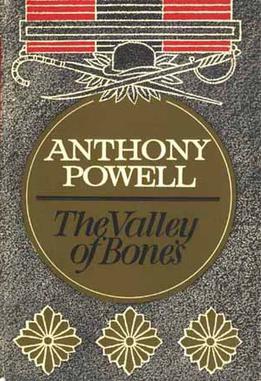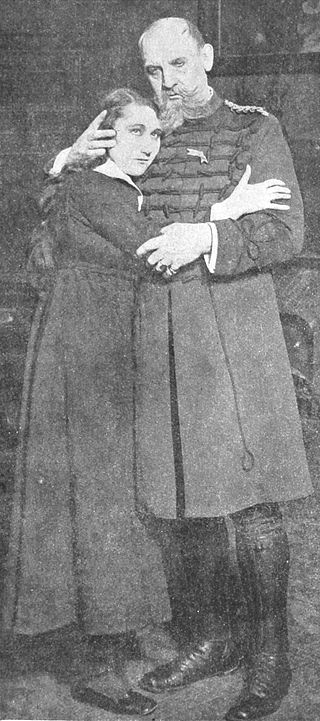Cecil Antonio Richardson was an English theatre and film director and producer whose career spanned five decades. In 1964, he won the Academy Award for Best Director for the film Tom Jones.

Osborne House is a former royal residence in East Cowes, Isle of Wight, United Kingdom. The house was built between 1845 and 1851 for Queen Victoria and Prince Albert as a summer home and rural retreat. Albert designed the house himself, in the style of an Italian Renaissance palazzo. The builder was Thomas Cubitt, the London architect and builder whose company built the main facade of Buckingham Palace for the royal couple in 1847. An earlier smaller house on the Osborne site was demolished to make way for the new and far larger house, though the original entrance portico survives as the main gateway to the walled garden.

John James Osborne was an English playwright, screenwriter, actor, and entrepreneur. Born in London, he briefly worked as a journalist before starting out in theatre as a stage manager and actor. He lived in poverty for several years before his third produced play, Look Back in Anger (1956), brought him national fame.

Kenneth Peacock Tynan was an English theatre critic and writer. Making his initial impact as a critic at The Observer, he praised John Osborne's Look Back in Anger (1956), and encouraged the emerging wave of British theatrical talent. In 1963, Tynan was appointed as the new National Theatre Company's literary manager.

The Hunger is a 1983 British erotic horror film directed by Tony Scott in his directorial debut, starring Catherine Deneuve, David Bowie, and Susan Sarandon. A production of the United Kingdom, the film is a loose adaptation of the 1981 novel of the same name by Whitley Strieber, with a screenplay by Ivan Davis and Michael Thomas. Its plot concerns a love triangle between a doctor who specializes in sleep and aging research (Sarandon) and a vampire couple. The film's special effects were handled by make-up effects artist Dick Smith.

Kitchen sink realism is a British cultural movement that developed in the late 1950s and early 1960s in theatre, art, novels, film and television plays, whose protagonists usually could be described as "angry young men" who were disillusioned with modern society. It used a style of social realism which depicted the domestic situations of working-class Britons, living in cramped rented accommodation and spending their off-hours drinking in grimy pubs, to explore controversial social and political issues ranging from abortion to homelessness. The harsh, realistic style contrasted sharply with the escapism of the previous generation's so-called "well-made plays".

The Royal Court Theatre, at different times known as the Court Theatre, the New Chelsea Theatre, and the Belgravia Theatre, is a non-commercial West End theatre in Sloane Square, London, England. In 1956 it was acquired by and remains the home of the English Stage Company, which is known for its contributions to contemporary theatre and won the Europe Prize Theatrical Realities in 1999.

The Lord Chamberlain's Office is a department within the British Royal Household. It is concerned with matters such as protocol, state visits, investitures, garden parties, royal weddings and funerals. For example, in April 2005 it organised the wedding of Charles, Prince of Wales and Camilla Parker Bowles. It is also responsible for authorising use of the Royal Arms.

Nora Noel Jill Bennett was a British actress.
Anthony Creighton, a British actor and writer, is best known as the co-author of the play Epitaph for George Dillon with John Osborne.
Mohamed Choukri was a Moroccan author and novelist who is best known for his internationally acclaimed autobiography For Bread Alone, which was described by the American playwright Tennessee Williams as "A true document of human desperation, shattering in its impact".

The Valley of Bones is the seventh novel in Anthony Powell's twelve-volume series A Dance to the Music of Time. Published in 1964, it is the first of the war trilogy.

Dracula is a stage play written by the Irish actor and playwright Hamilton Deane in 1924, then revised by the American writer John L. Balderston in 1927. It was the first authorized adaptation of Bram Stoker's 1897 novel Dracula. After touring in England, the original version of the play appeared at London's Little Theatre in July 1927, where it was seen by the American producer Horace Liveright. Liveright asked Balderston to revise the play for a Broadway production that opened at the Fulton Theatre in October 1927. This production starred Bela Lugosi in his first major English-speaking role.

The Father is a naturalistic tragedy by Swedish playwright August Strindberg, written in 1887. It is about the struggle between parents over the future of their child; resulting in the mother, using her cunning manipulative skills, subduing and finally destroying the father.
A Better Class of Person (1981) is an autobiography written by dramatist John Osborne and published in 1981. Based on Osborne's childhood and early life, it ends with the first performance of Look Back in Anger at the Royal Court Theatre in 1956. The book emphasises his warm relationship with his father Thomas, and his antagonistic relationship with his mother Nellie Beatrice, which deepened to hatred after his father died when John was young. A sequel, Almost a Gentleman, was published in 1991.

The Shewing-Up of Blanco Posnet: A Sermon in Crude Melodrama is a one-act play by George Bernard Shaw, first produced in 1909. Shaw describes the play as a religious tract in dramatic form.

Déjàvu is a stage play by John Osborne performed in 1992. It was Osborne's final work for the theatre, the failure of which on the stage made him decide to give up play-writing. The play is a sequel to Osborne's first successful play, Look Back in Anger (1956); it portrays the life and thoughts of the central character from the earlier play, Jimmy Porter, in middle age.

The World of Paul Slickey (1959) is a play by John Osborne. It was Osborne's only musical, intended as a social satire on high-society gossip columnists. After the huge successes of Osborne's previous plays Look Back in Anger and The Entertainer, the play was to become "one of the most spectacular disasters in English theatre".

The Blood of the Bambergs (1962) is a short two-act play by John Osborne, published in his book "Plays for England". It was designed to be shown in a double-bill with another short play, Under Plain Cover. The Blood of the Bambergs is a satirical commentary on royal weddings, in a variation on the story of The Prisoner of Zenda.
Plays for England was the title of a double-bill of plays written, performed and published by John Osborne, released by Evans Brothers Limited in London in 1962. It comprised The Blood of the Bambergs and Under Plain Cover.













